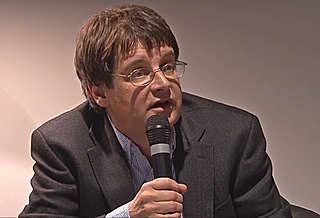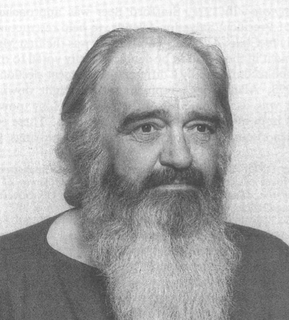A Quote by Noam Chomsky
Capitalism is a system in which the central institutions of society are, in principle, under autocratic control. Thus, a corporation or an industry is, if we were to think of it in political terms, fascist, that is, it has tight control at the top and strict obedience has to be established at every level. [...] Just as I'm opposed to political fascism, I am opposed to economic fascism. I think that until the major institutions of society are under the popular control of participants and communities, it's pointless to talk about democracy.
Quote Topics
About
Am
Autocratic
Capitalism
Central
Communities
Control
Corporation
Democracy
Economic
Established
Every
Fascism
Fascist
Industry
Institutions
Just
Level
Major
Obedience
Opposed
Participants
Pointless
Political
Popular
Principle
Society
Strict
System
Talk
Terms
Think
Thus
Tight
Top
Until
Were
Which
Related Quotes
Major efforts have to be undertaken to bring the general public to understand the real reasons for their plight, and the possibilities for radical social and political change to construct meaningful popular control of all institutions - in communities, in the workplace, in the larger society, and on to the international order.
For me, it is clear that we are currently in a period of structural crisis of capitalism going back to the 1970s, but deepening in our time. Persistent economic stagnation together with neoliberal austerity has at this point seriously undermined the stability of the liberal-democratic state and thus the political command sector of the capitalist system. This has led to a dangerous resurgence of political movements in the fascist genus, representing an alternative way of managing the state of the capitalist system, opposed to liberal democracy.
I describe what is happening as 'food fascism' because this system can only survive through totalitarian control. With patents on seed, an illegitimate legal system is manipulated to create seed monopolies. Seed laws that require uniformity - which criminalize diversity and the use of open-pollinated seeds - are fascist in nature. Suing farmers after contaminating their crops, [...] is another aspect of this fascism. Pseudo-hygiene laws that criminalize local, artisanal food are food fascism. And attacks on scientists and the silencing of independent research [...] are examples of knowledge fascism.
As political theorist Michael Parenti points out, historians often overlook Fascism's economic agenda--the partnership between Big Capital and Big Government--in their analysis of its authoritarian social program. Indeed, according to Bertram Gross in his startlingly prescient Friendly Fascism (1980), it is possible to achieve fascist goals within an ostensibly democratic society.
A society which makes provision for participation in its good of all its members on equal terms and which secures flexible readjustment of its institutions through interaction of the different forms of associated life is in so far democratic. Such a society must have a type of education which gives individuals a personal interest in social relationships and control, and the habits of mind which secure social changes without introducing disorder.
According to the science of cybernetics, which deals with the topic of control in every kind of system (mechanical, electronic, biological, human, economic, and so on), there is a natural law that governs the capacity of a control system to work. It says that the control must be capable of generating as much "variety" as the situation to be controlled.
We in America were worried about many problems dealing with economic inequality and political inequality. The Communist Party seemed to be the only political force, both concerned and willing, to take action to stop the threat of fascism abroad and to work for economic and political reform in this country.



































